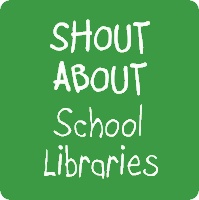We have combined a celebration of World Book Day (Thursday 6th March) with International Women’s Day (Friday 7th March).
Our library book displays include cracking reads to kickstart reading for pleasure and a selection of our choices can be seen on the library Padlet here
There is also a padlet – a visual reading list on Gender, Identity and Feminism (padlet.com) This also includes books by and about women with some recommendations of fascinating biographies and autobiographies.
Two particularly thought-provoking and enlightening non-fiction reads, available in the library and as e-books are:
- Invisible Women: Exposing Data Bias in a World Designed for Men
by Caroline Criado Perez - The Authority Gap by Mary Ann Sieghart
The Women’s Prize for Fiction organisers have just announced the first Women’s Prize for Non-Fiction as a way of promoting women’s writing in this field. The books are available in the library. Read more here.
The 16 title longlist has been announced.
The full list in alphabetical order by author surname is:
- The Britannias: An Island Quest by Alice Albinia, published by Allen Lane
- Vulture Capitalism: Corporate Crimes, Backdoor Bailouts and the Death of Freedom by Grace Blakely, published by Bloomsbury
- Eve: How The Female Body Drove 200 Million Years of Human Evolution by Cat Bohannon, published by Hutchinson Heinemann
- Intervals published by Marianne Brooker published by Fitzcarraldo Editions
- Shadows at Noon: The South Asian Twentieth Century by Joya Chatterji published by Bodley Head
- Thunderclap: A Memoir of Art and Life and Sudden Death by Laura Cumming, published by Chatto & Windus
- Some People Need Killing: A Memoir of Murder in the Philippines by Patricia Evangelista, published by Grove Press
- Wifedom: Mrs Orwell’s Invisible Life by Anna Funder, published by Viking
- Matrescence: On the Metamorphosis of Pregnancy, Childbirth and Motherhood by Lucy Jones, published by Allen Lane
- Doppelganger: A Trip Into the Mirror World by Naomi Klein, published by Allen Lane Hamish Hamilton
- A Flat Place by Noreen Masud, published by Hamish Hamilton
- All That She Carried: The Journey of Ashley’s Sack, a Black Family Keepsake by Tiya Miles, published by Profile
- Code-Dependent: Living in the Shadow of AI by Madhumita Murgia, published by Picador
- The Dictionary People: The Unsung Heroes who Created the Oxford English Dictionary by Sarah Ogilvie, published by Chatto & Windus
- Young Queens: The Intertwined Lives of Catherine de’ Medici, Elisabeth de Valois and Mary, Queen of Scots by Leah Redmond Chang, published by Bloomsbury Circus
- How to Say Babylon: A Jamaican Memoir by Safiya Sinclair, published by 4th Estate
The website explains:
The Women’s Prize for Non-Fiction is a major new annual book prize that celebrates exceptional narrative non-fiction by women. The Prize promotes excellence in writing, robust research, original narrative voices and accessibility, showcasing women’s expertise across a range of fields.
The Prize will be awarded annually and is open to all women writers from across the globe who are published in the UK and writing in English. The winner receives a cheque for £30,000 and a limited-edition artwork known as the ‘Charlotte’, both gifted by the Charlotte Aitken Trust.
Women’s prize for fiction winners (padlet.com)
There is also an interesting reading list from Foyles booksellers who asked women authors for their recommendations:
To celebrate International Women’s Day this year, we asked the authors we admire to share their recommendations, and they delivered! From defining novels of the eighteenth and twentieth centuries, to international bestsellers of the modern day—expect themes of motherhood, translation, rage, and resistance, amongst this essential reading list.
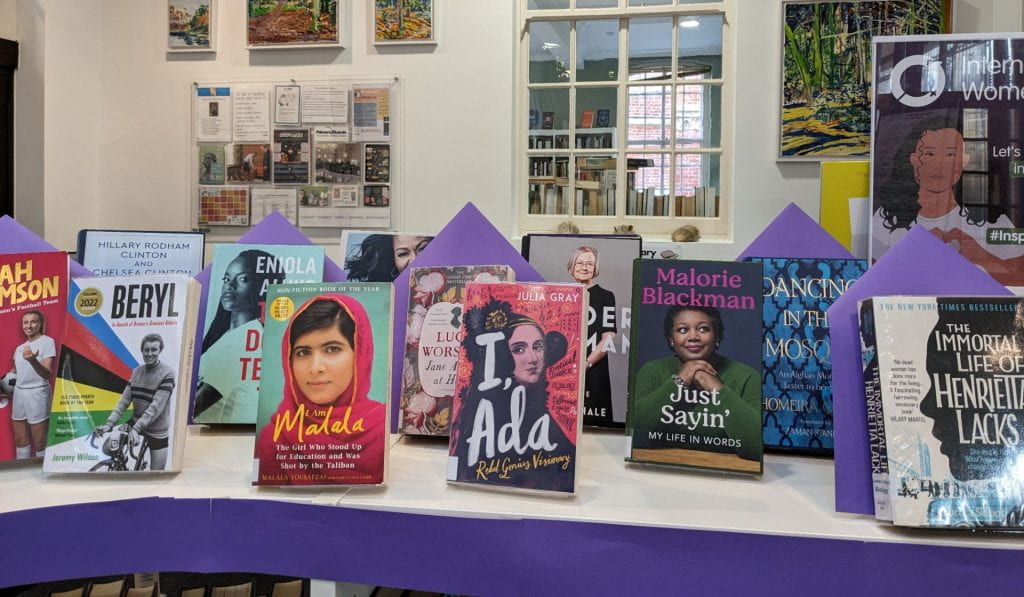
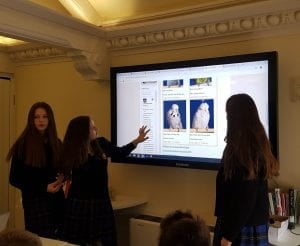
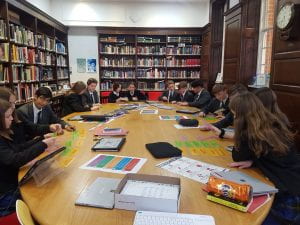
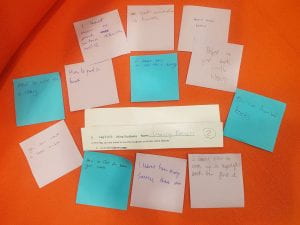
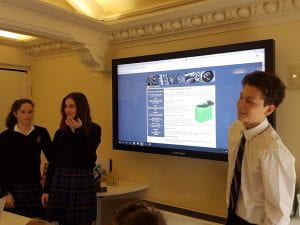
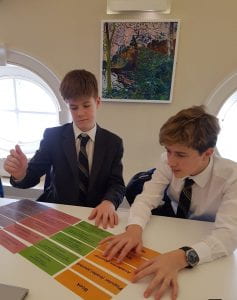 nks to the librarians at Middlesex University for sharing this excellent idea. They have developed a wide range of hands-on activities which form useful bases for discussion and group work. All their resources are found here:
nks to the librarians at Middlesex University for sharing this excellent idea. They have developed a wide range of hands-on activities which form useful bases for discussion and group work. All their resources are found here: